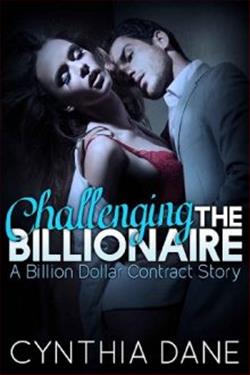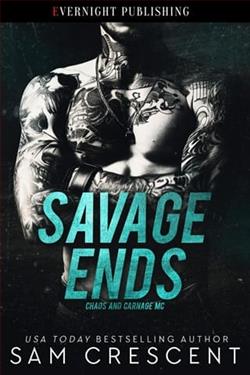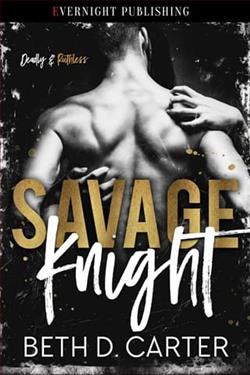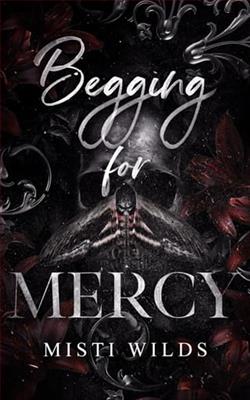Page 83 of This Could Be Us
“Soledad,” she answers without preamble, her voice cool and liquid. “I wondered if you would call.”
“Oneida, hi.” I clear my throat before going on. “I hope you’re doing well.”
“As well as a mother can be when her wrongly accused son rots in prison for crimes he didn’t commit.”
“Um… you do realize Edward pled guilty when it became apparent the evidence was overwhelming?”
“‘Evidence’”—she says the word as if it’s a tenet of a conspiracy theory—“that you magically produced to save yourself and your house and your car and all your designer dresses. And then to abandon him in his hour of need.”
Anger bubbles in my blood, and there’s so much steam building inside, my head might whistle if I don’t let some of it out.
“First of all,” I say, my jaw clenched hard enough to hurt, “I don’t have the fancy car your son insisted on buying anymore. I sold it for something more affordable. Other people walk around in my clothes now because I consigned most of them. And I bust my ass to keep this house because it’s my daughters’ home, and it will have to be pried from my cold, dead fingers.”
“Well, it’s about time you downsized anyway.”
“On that we can agree. I had so many things in my life that really weren’t necessary, including a lying cheat of a man. Consigned him too. To a federal prison.”
“And here I was thinking you called to thank me for the tuition payments I sent,” Oneida says, huffing her outrage on the other end of the line.
“And hereIwas thinking you wanted to help your granddaughters since your son stole six million dollars and left me to provide for them all by myself. Guess we were both wrong.”
“Well, a thank-you would be nice,” Oneida says. “And to see my granddaughters every once in a while. Even if it’s only Lupe.”
I tighten my hand on my cell.
“She’s at an age now,” Oneida continues, “where she’d perform so well in pageants. She’s such a beautiful girl.”
“They’re all beautiful,” I interject stiffly. “Lupe hates pageants. And just because one looks like your side of the family and the other two look like mine doesn’t make one better than the others.”
“Of course it doesn’t,” Oneida gasps. “I resent what you’re implying.”
“And I resent you thinking you can control me or my girls through your money.”
“That is not at all what I’m doing,” Oneida returns hotly. “What Edward ever saw in you I don’t know.”
“I believe it was my ass and the fact that I basically put him through grad school. He knew my ambition was to raise a family and build a wonderful life for them and decided he should be the primary beneficiary of all this talent.”
“Look, do you want the money or not?” she snaps, her tone as frigid as a Boston winter.
“Not if it comes with strings. You don’t get to tell me how to raise my daughters or run my household or anything. By necessity we’ve built a life for ourselves that doesn’t include Edward, and by choice I want to keep it that way. If you want any role in my daughters’ lives, you need to figure out what’s important. Defending your lying-ass criminal son and constantly demeaning me or finding some way to be in your grandchildren’s lives that aligns with our values. You don’t get both.”
The silence on the other end elongates, stretchy and sticky.
“Keep the money,” she finally mutters. “They’re my son’s daughters.Theydeserve the best.”
The obvious implication that I do not rolls right off my back. There was a time when my pride wouldn’t have let me keep this money, would have had me tossing it in her face—a grand gesture I can no longer afford. I’m depositing this check as soon as I hang up.
“You’re right, Oneida,” I simply reply. “They do.”
And with that we disconnect.
CHAPTER TWENTY-EIGHT
SOLEDAD
You’ve checked everything like four times,” Rhea says, spooning fondant potatoes onto gold-rimmed plates. “I think we’re good to go.”
“We wouldn’t be without your help.” I start one more circuit around the Callahans’ huge kitchen, inspecting the plates we’ve loaded up so far. “Thank you for everything.”















